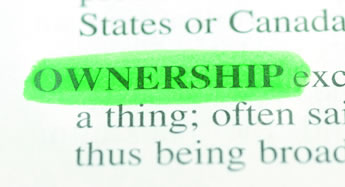The importance of IP due diligence
What is IP due diligence?
IP due diligence is essentially an audit to assess the quantity and the quality of intellectual property assets owned by, or licensed to, a company, business or individual. It should also include an assessment of how intellectual property is captured and protected by the relevant company or business.
Typically, IP due diligence is carried out by a prospective purchaser in relation to the IP assets of the target company or business. However, IP due diligence can also be carried out by a company on its own IP assets in preparation for a transaction, such as a business sale or a major licensing deal.
Why conduct IP due diligence?
In respect of your own intellectual property assets:
Increasingly, intellectual property assets have become one of the most important assets a business has, and this is especially true for life sciences businesses. Therefore, it is important that you understand:
- the quality and quantity of your intellectual property assets so that you and third parties are able to put a value on them. You should also be able to identify intellectual property assets that are not utilised and whose maintenance represents an unnecessary cost;
- the processes that you have in place to capture all the intellectual property assets you create so that these can be adequately protected and used;
- the chain of title from which you derive ownership of the intellectual property assets in order to ensure that you have all the necessary rights to them; and
- whether any third party is, or is suspected to be, infringing your intellectual property rights.
In respect of a third party’s intellectual property assets which you are considering acquiring or obtaining a licence under:
Given the importance of intellectual property assets to a business, and the willingness of owners to litigate in order to protect them, it is important that you ensure:
 that you have "freedom to operate" in respect of your present and future business activities. This is to prevent wasting resources on an enterprise that you may later be forced to stop as a result of infringing third party intellectual property and in some cases in respect of which you could later have to pay significant damages; and
that you have "freedom to operate" in respect of your present and future business activities. This is to prevent wasting resources on an enterprise that you may later be forced to stop as a result of infringing third party intellectual property and in some cases in respect of which you could later have to pay significant damages; and- that a third party from which you are acquiring intellectual property rights has full entitlement to them.
The principal aims of good IP management and effective IP due diligence
As a prospective vendor (or licensor), you should ensure you have good IP management practices in place; as a prospective purchaser (or licensee), you will hope to see these in place during your due diligence.
The key elements of good IP management and transaction preparation for a prospective vendor or licensor are:
- Ensure that you are adequately capturing all the intellectual property assets you generate
You should ensure that you have adequate processes and policies in place in order to capture intellectual property rights before you start to create them. Furthermore, there should be a regular and routine check for compliance with these processes, to ensure that they remain fit for purpose.
The frequency of such reviews will vary depending on the nature of your business.
- Ensure that you understand the title to, and scope of, your intellectual property rights
If the time comes to sell your business or license your technology to a third party, the documents and evidence recording your intellectual property rights will come under intense scrutiny from the other party in the transaction. Therefore it is imperative that you have a clear and unambiguous record of who owns the title to those rights.
This record should ideally be checked on a continual basis, ensuring that all contracts and other documents relating to intellectual property assets are professionally drafted.
At a bare minimum, you should conduct this process prior to opening transaction discussions with a third party. This will afford you the opportunity to correct any adverse issues that may be revealed later during the transaction process.
- Ensure that you understand the scope of protection of your intellectual property
 Before investing heavily in the development of a new product, it is important to understand the strength and scope of the intellectual property asset portfolio that will protect it. In particular, you need to know whether your intellectual property can be relied upon to prevent third parties copying or using the technology or material that you believe is protected.
Before investing heavily in the development of a new product, it is important to understand the strength and scope of the intellectual property asset portfolio that will protect it. In particular, you need to know whether your intellectual property can be relied upon to prevent third parties copying or using the technology or material that you believe is protected.
This process will also enable you (and ultimately third parties) to better understand the value of your intellectual property. This is because the value of an intellectual property asset is linked to the premium that can result from having a monopoly over its commercial exploitation.
Such a review should be conducted prior to opening any discussions with third parties about a transaction involving your intellectual property assets.
- Ensure that you are not incurring costs in respect of unused intellectual property assets
You should check that all the intellectual property assets for which you are paying renewal fees are worth maintaining. If you own a significant portfolio of patents, for instance, the annual renewal costs can be significant. If there are intellectual property rights that are of no value to your business, you should look for ways to either license or sell them (and consider also whether the Patent Box may provide tax advantages in relation to the revenue generated from such a licence or sale).
You should conduct such a review at regular intervals.
- Ensure that nobody is infringing your intellectual property rights
To maintain the value of your intellectual property and ensure that you obtain all the benefits of it, you need to be on the alert for possible infringers. This requires having a process in place to monitor the market for any infringing activity or potentially infringing activity as soon as it emerges.
The sooner you challenge an infringer (i.e. the earlier the stage of their investment in a potentially infringing business), the more likely you are to be able to stop them without having to engage in costly litigation.
- Ensure that conducting your business will not infringe a third party’s intellectual property rights
It is vital before you invest in a product that you check whether you have ‘freedom to operate’ in respect of it – that there are no third party intellectual property rights that would prevent you from conducting your business in respect of that product. Hence, it is important that you understand in detail what your product is and how you will make it so that you can check that none of this will infringe third party intellectual property rights.
From the point of view of a prospective purchaser or licensee, you should have an IP checklist of what you want to investigate:
 You should check thoroughly at an early stage in a transaction the third party’s intellectual property assets, including: scope of protection; scope of rights granted in respect of licences-in; scope of licences-out already granted; chain of title to such assets; whether anybody is challenging the validity of the assets; and whether the third party is potentially infringing any other intellectual property rights.
You should check thoroughly at an early stage in a transaction the third party’s intellectual property assets, including: scope of protection; scope of rights granted in respect of licences-in; scope of licences-out already granted; chain of title to such assets; whether anybody is challenging the validity of the assets; and whether the third party is potentially infringing any other intellectual property rights.
You should do this by both:
- looking at the relevant documents made available to you by the third party;
- seeking responses from the third party to a suitable due diligence questionnaire with appropriate questions relating to intellectual property; and
- providing a draft set of intellectual property warranties you expect the third party to agree to as part of the transaction. These should be designed to elicit any issues the third party already knows about.
For a prospective purchaser, failing to take these steps could result in significant wasted transaction costs if you later have to walk away from a transaction due to an adverse issue that could have been identified early on. Furthermore, failing to conduct an adequate review and having sufficient warranties could also mean paying for assets that are worth less than you thought. It could even mean paying for assets that have onerous liabilities to third parties attached to them and which you cannot use.
For a prospective vendor, good IP housekeeping practices, and a structured approach to IP due diligence, will assist not only in maximising the value of your intellectual property assets, but also in ensuring transactions run as smoothly as possible.
If you have any questions on this article or would like to propose a subject to be addressed by Synapse please contact us.


"From the point of view of a prospective purchaser or licensee, you should have an IP checklist of what you want to investigate."

